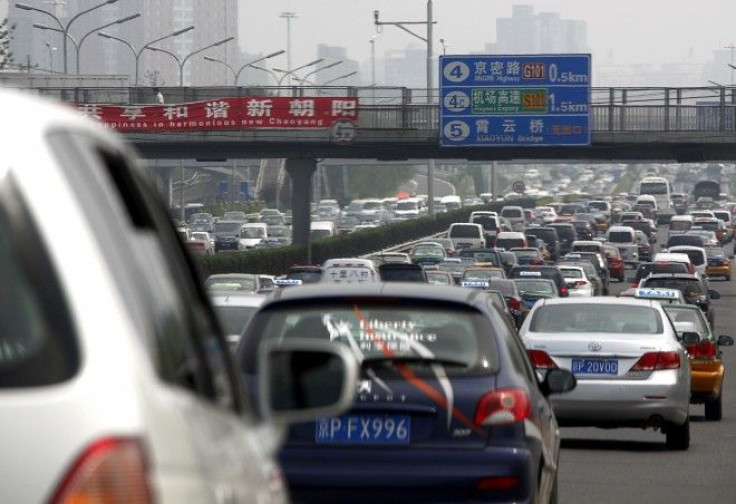China Mulling Vehicle Purchase Restrictions In Eight More Cities To Curb Air Pollution

China is planning to impose restrictions on new vehicle purchases in eight more cities, in addition to existing curbs in four major cities -- Beijing, Shanghai, Guangzhou and Guiyang -- to control traffic congestion and air pollution, but automakers, as well as environmentalists, say the move would not make much of a difference to vehicle sales or pollution.
Industry insiders who spoke to Reuters said the restrictions, most likely to be similar to those in Beijing and Shanghai, where the number of license plates are limited and can be won through a lottery system, will not affect overall auto sales volumes in China.
“We expect licensing restrictions to have limited impact on new car sales,” Bob Socia, head of China operations for General Motors Company (NYSE:GM) told Reuters, adding that the sales reduction in Tier 1 and Tier 2 cities, which are becoming more or less saturated, would be offset by fast growth in sales elsewhere in China’s rapidly growing smaller cities.
“If all 25 cities with severe traffic situations in China were all to implement restrictions in 2015, we estimate that the impact to GM car sales would only be about 2-3 percent,” Socia said.
China Association of Automobile Manufacturers, or CAAM, had warned last week that new restrictions would impact vehicle sales in China, where 13 million cars were sold in 2012. CAAM said the cities that would soon come under vehicle purchase restrictions include Chengdu, Chongqing and Wuhan, but government officials have not yet announced the policy.
Data from CAAM show that automobile sales in the country in June increased 11 percent over June 2012, while automobile production in June saw an increase of 9 percent compared to the same period last year.
Governmental controls on vehicle purchases are expected to make little difference to air pollution levels in Chinese cities, as industrial emissions -- mainly burning of coal and oil for power stations -- rather than vehicle emissions, are the main source of air pollution.
The government in China, where only 27 out of 113 major cities met air quality standards last year, has been facing pressure from urban residents to improve the situation in its cities, especially after pollution levels in the capital, Beijing, in January, went off the scale of an air-quality monitor at the U.S. embassy, and the city’s hospitals recorded a 20 percent surge in patient admissions.
© Copyright IBTimes 2024. All rights reserved.












